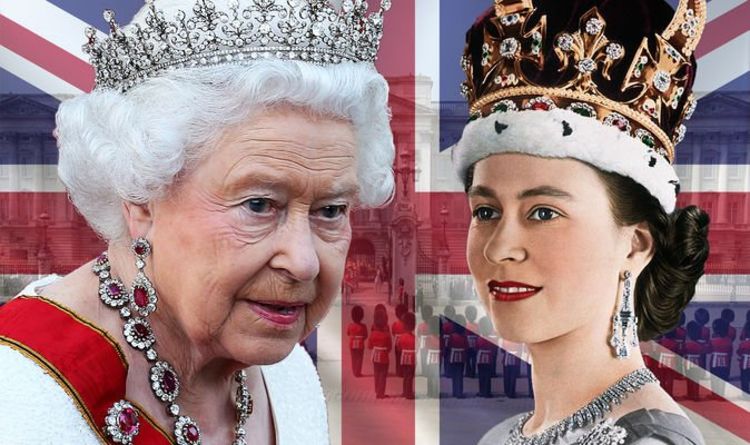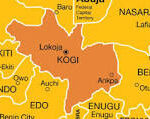When I was contacted by the British publisher of Max Siollun’s latest book, What Britain Did to Nigeria, to read the manuscript at the time it was scheduled to go to press, I wasn’t prepared for the collection of tragedies masterminded by imperial Britain in building what was, at a point in our history, the largest empire on the planet. And my blurb was blunt. “By the end of this book,” I wrote, “the line between savagery and civilisation becomes indelibly blurred.”
The death of Queen Elizabeth II, after surviving a thousand rumours of her final minute, was mourned differently across the world. The conversations around the blurry line were initiated by black, Asian, and Irish voices—and some of the unsympathetic tributes were countered as ill-timed and extreme. But, unfortunately, the Queen was a symbol of an idea that burned across the world during the reign of her great-great-grandmother, Queen Victoria, and changed the world as it was permanently. It’s an idea that still burns, and policing the thoughts around, and reactions to, its symbol—especially the British royal family—is a strange bid.
- ‘40, 000 Nigerian children diagnosed with cancer annually’
- NIGERIA DAILY: Why Most Nigerians Are Leaving The Country
The whitewashing of colonialism in some of the tributes to the Queen are temptations we must resist, and it shouldn’t come from the descendants of the victims of the Crown’s imperial conquests. There’s a difference between honouring a grieving family and attempting to revise history in dispensing our condolences. The former colonies didn’t submit to the civilisation marketed by the British Empire. They were conquered, subsumed, and, where they resisted, massacred.
In 1903, when the Sokoto Caliphate was surrounded by the British colonial forces, the monarch, Muhammadu Attahiru I, was asked to abdicate after long resistance to European colonisation. He mobilised his army to defend the Caliphate, and the tragedy that transpired was recollected in a 1932 book by Frank Percy Crozier, a participating military officer. “The Fulani come over,” he wrote about the British siege of the Caliphate. “Hundreds, thousands of shrieking humanity – mounted and on foot. Drumming and horning – up they come; right up to the bayonet points! The Maxims belch forth – brigaded guns Rat – tat – tat – that’s fine!” It was a strategic massacre, and the fleeing monarch was exiled to Lokoja, the British capital of Northern Nigeria, where he remained until he died in 1927.
Far away, in Britain, Queen Elizabeth II’s paternal uncle, King Edward VII, sat on the throne while his countrymen led a spate of massacres to expand the prestige of the Empire. The subservient monarchs of colonised territories who functioned under the British colonial system weren’t rulers. They were glorified tax-collectors occupying administrative offices in the colonial bureaucracy. The conquered territories weren’t only left with caricatures of a monarchy living in the shadows of an alien system, they became vast graveyards of resisting and rebellious forces.
European colonizers attacked under the guise of selling a superior civilisation, but some of the territories being sacked had had a defined political administrative system and, especially, jurisprudence and education, hundreds of years before the foreigners’ ships berthed. Northern Nigeria, for instance, had had an education system since the 13th century, with Kanem-Borno’s learning centre even attracting students and scholars from other parts of the world.
The partitioning of Africa at the 1884 Berlin Conference was not an idea that can’t be discussed because of any monarch’s demise. It’s even more so in reference to a country to which some, if not most, of the world’s national identity crises, are attributed today. Colonialism is a tragedy that must be discussed even in a funeral house. What’s perceived as a civilising mission by some is genocide for others, and both sides are entitled to their historical standpoint.
The media lynching of US-based Nigerian Professor, Uju Anya, was inspired, first, by a standpoint that plays down colonialism as the source code of these poorly-programmed realities of former European colonies and, secondly, sympathy for a frail old woman who died approaching her centenary. Wishing the Queen—who led in an era she had no power to authorise aggressions abroad or undo her ancestors’ decisions—“excruciating pain” while she’s breathing her last wasn’t a protest of colonialism. It’s downright silliness. She’s the least of anyone’s threats today.
Uju Anya was a victim of her missed shots. She had her moment to practise her craft as an intellectual—to interrogate contemporary heirs and beneficiaries of the colonial system, the ones who authorised the falls of Iraq and Libya, but chose to make herself an easy punching bag for racists seeking black voices who miss their shots. She’s not targeted for just being black. Some of the harshest critics of colonial legacy are people of colour bred in the West and funded by Western institutions that benefitted from the slave trade and colonialism. Uju is under fire for being an academic practising to be a rabid thug.
There’s colonialism in practice even today, and it didn’t die with a 96-year-old monarch, and it’s disheartening that a cast of historical revisionists has embarked on citing the gap between the physical departure of colonizers and today’s realities of the former colonizers to heave the entire blames on African leaders. There’s no way to sever the connection between colonialism and the development dilemma in most of the former colonies today. It’s even more laughable when a critic cites the economic prosperity of East and South-East Asia to make their point.
Africa never had the immediate geopolitical advantage explored by East and South East Asia, some of which keyed into the imperial prestige attained by Japan after the First World War. Japan got to sit at the high table with the Western powers so long that it partook in a war to disrupt the status quo in lockstep with Nazi Germany. In Africa, the links were harder to sever, with most attempts to leave the shadow of the West frustrated by foreign interventions and dictations, and with puppet leaders installed after coups and political assassinations to sustain the continent as the base of raw materials.
A few months ago, in an exchange with an African-American author on Twitter Space, I challenged his trivialisation of Westbound patterns of migrations by Africans, which he demonised in the harshest Afrophobic tone. But I underlined that if the West had not interfered with the continent, which had existed for millennia without going West, and also guided Africa’s development trajectory to serve its imperial purpose, there wouldn’t have been these scales of economic migrations and volumes of scholarship on why Africa seems like a satellite of the West in 2022.
This is why China’s South-South sentiments were appealing, and it’s time for the smartest African leaders to form beneficial alliances with Beijing to escape both the real and imaginary satellization of the continent. Remembering our history as it played out isn’t manufacturing excuses for today’s African leaders, most of whom are tragically unfit to manage even a warehouse. There is no contradiction between attributing Africa’s economic woes to colonisation and carpeting African leaders for serving their purses instead of designing an escape route out of Western-dominated global economic dictations.




